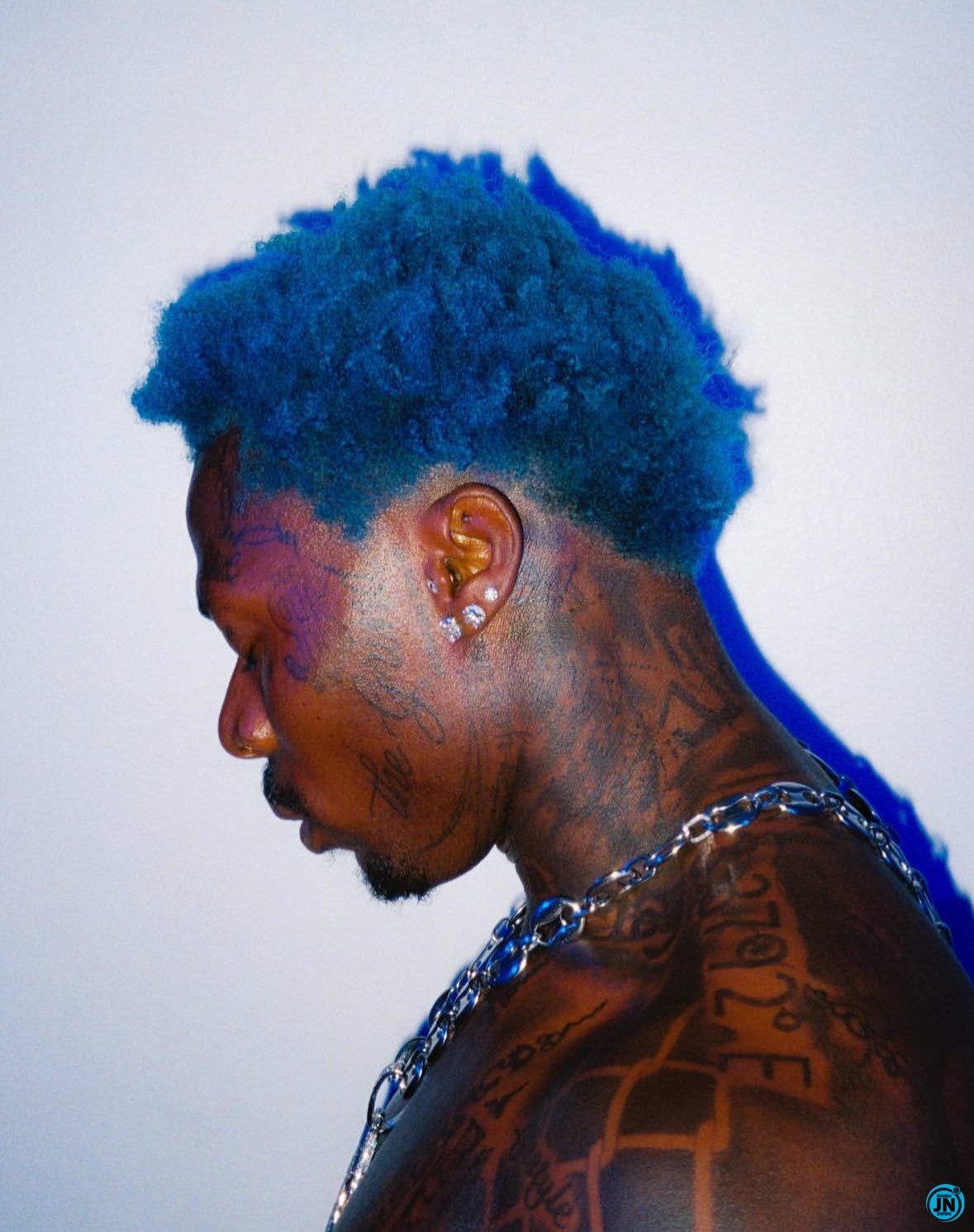The Senior Special Assistant on Media to the Delta State Governor, Ossai Ovie Success, has publicly expressed strong disapproval and ridiculed the internationally recognised Nigerian singer, Asake, also known as Ololade Mr Money, over the extensive new tattoos he recently unveiled.
Over the past week, Asake, who previously signed with Olamide’s YBNL Nation record label, took to social media to showcase his latest tattoos. These new body art designs cover significant portions of his face and nearly all other visible areas of his body, sparking reactions from fans and critics alike.

Asake, known for his love of tattoos, surprised many by the sheer extent of his latest designs, which leave very little skin untouched. His bold display has raised questions among followers and industry observers regarding the motivations and cultural implications behind such choices.
Ossai Ovie on disappointment over Asake’s tattoos
In a detailed Facebook post, Ossai Ovie did not mince words as he criticized Asake’s adoption of Western lifestyle practices, asserting that the singer seems to have lost touch with his Nigerian roots despite his rise to fame. Ossai argued that Asake’s excessive tattooing reflects a misplaced pride and departure from the values that contributed to his success in the music industry.

Ossai Ovie wrote, “Asake is exhibiting def*rmity and I’m disappointed in him. Asake was a poor boy whom God raised from grass to grace. Today, look at him and what he has become because of western exposure. Since he relocated from Nigeria, he has tattooed his whole body and exhibiting pride.”
He continued, “I don’t know what he’s feeling like with these low-key signs of midlife anxiety. I wonder what the motivation for so many tattoos is. Cos, what is all this? People like this grow up frustrated and unhappy. This is why God doesn’t bless some persons because He knows they will be worse in the future with fame and money. Indeed Asake is lonely at the top. I am really disappointed.”
Ossai further noted that while personal expression through body art is common, Asake’s extensive tattooing, particularly after achieving success, might signal deeper insecurities or dissatisfaction with life despite material achievements. He suggested that fame and wealth do not automatically equate to personal fulfillment, using Asake’s transformation as a cautionary example for others in the music industry.
Reactions trailing Ossai’s opinion
Chichi Ogonna Mba commented, “Let’ his God be dat disappointed, cos u are not perfect.”
Felix Anasiudu reacted, “A very successful athlete took off from the blocks and dumped many behind and got to the summit of race! When the journalists cornered him with the question, ‘How do you feel getting to the top?’ His response will shock you, he said, ‘I wished somebody was there from the start, to tell me not to run.’ They asked him, ‘How do you mean?’ …He said, ‘When I got to the top, I saw nothing THERE!…..There is nothing to see at the pinnacle of stardom, but vanity, regret, and anguish!’”
Sam E Oscar added, “Is not everyone who left grass to the top was lifted by God. The devil lifts people too…👌 Moreover, don’t judge a book by its cover, many of these kind of people if you get closer you’ll understand that they are very kind and generous people.. naso LIL Wayne deh.”
Chinedu Eze opined, “God is not the source of his wealth. Not every money is gotten from God. People should stop deceiving themselves.”
The discussion sparked by Ossai Ovie’s critique highlights ongoing debates within Nigerian society regarding fame, success, cultural identity, and the influence of Western lifestyle practices on local artists. While some fans sympathize with Asake’s personal choices and freedom of expression, others echo Ossai’s concerns, viewing the extensive tattoos as a symbolic departure from traditional values and an overemphasis on image over substance.
The debate continues across social media platforms, with varying opinions on whether Asake’s tattoos reflect personal empowerment, artistic expression, or a cautionary tale about the pressures of fame and cultural influence in the entertainment industry.